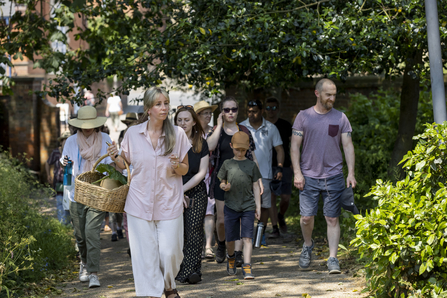We live in a country where there are incredible landscapes if you know where to go and have the means of getting there, yet access to clean, safe, biodiverse nature is deeply unequal. Some communities are blessed with leafy parks, riverside paths, and wildflower meadows within minutes. Others face streets of tarmac and brick, devoid of any nature, with the nearest green space a bus ride away, if they can afford the fare.
The UK Government has set an ambition that everyone should live within a 15‑minute walk of a nature space. It’s a good ambition. But right now, it’s far from reality.
And the cost of this inequality is measured in poorer health, shorter lives, and diminished well-being.


